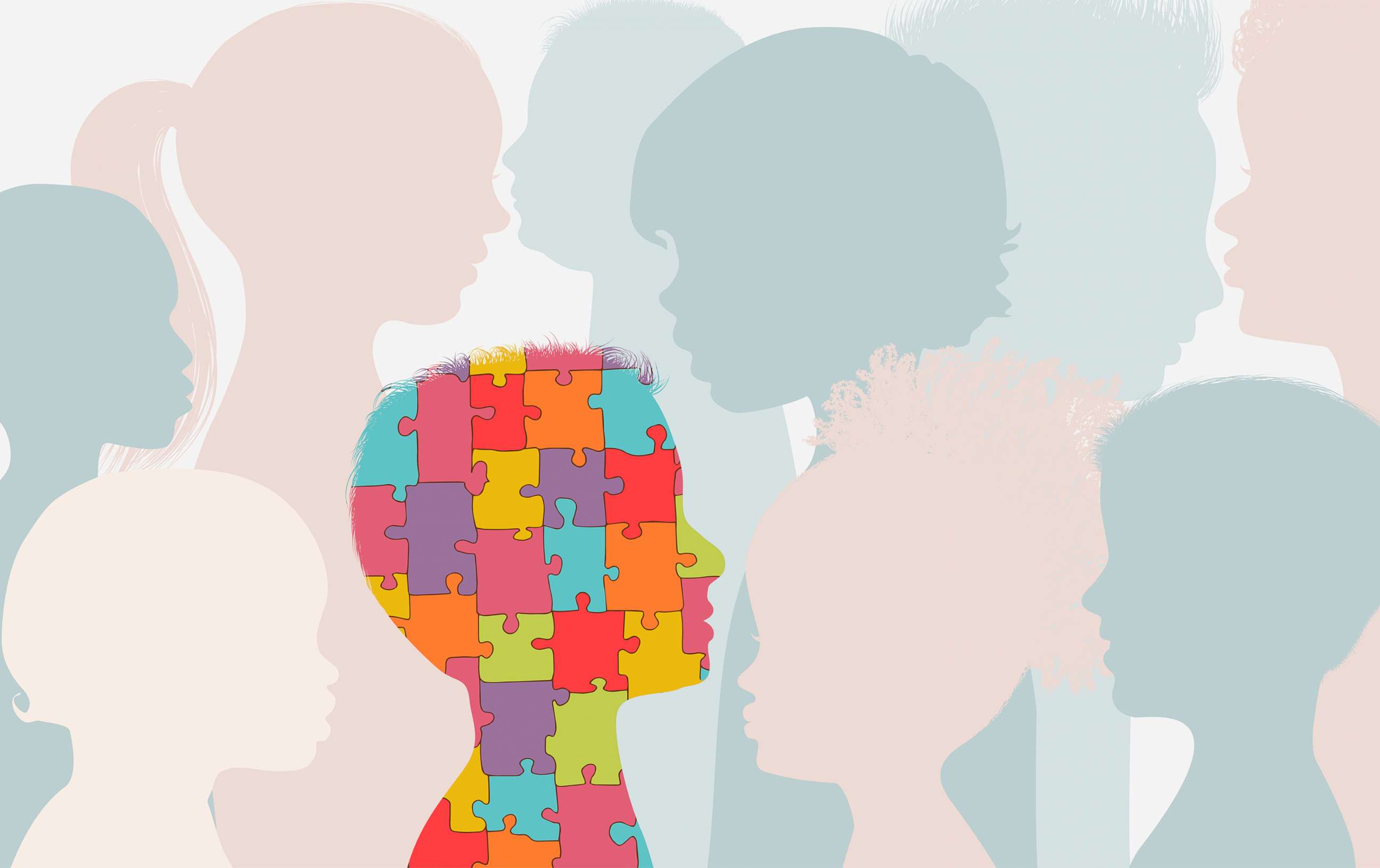Autism and Sensory Handling: Discovering the Link and Its Results
Autism and Sensory Handling: Discovering the Link and Its Results
Blog Article
Understanding Autism: A Comprehensive Overview to Symptoms And Signs
Autism Spectrum Condition (ASD) encompasses a wide variety of attributes that can significantly impact an individual's social communications and day-to-day functioning. Recognizing the signs and signs, such as obstacles with eye contact, social interaction difficulties, and sensory level of sensitivities, is essential for very early intervention. Recognizing these nuances not only help caregivers and teachers in providing proper assistance but additionally fosters a much more comprehensive environment for individuals with ASD. As we discover the complexities of autism, it ends up being important to think about just how these indicators manifest in different ways across the spectrum and what ramifications they hold for reliable treatment techniques.
Review of Autism Spectrum Disorder
Defining Autism Spectrum Disorder (ASD) involves recognizing it as a complex neurodevelopmental condition characterized by a series of challenges in social interaction, communication, and behavioral patterns. The term "range" mirrors the vast irregularity in signs and symptoms and their extent, which can vary dramatically from one person to one more. ASD commonly shows up in very early youth, although some individuals may not receive a medical diagnosis till later on in life.
Elements influencing the development of ASD consist of environmental factors and hereditary proneness, although the precise causes remain under examination. Medical diagnosis commonly relies upon behavioral analyses, as there are no conclusive medical tests for ASD. Early treatment is critical and can substantially enhance outcomes, concentrating on improving communication abilities, social interactions, and adaptive actions.
Individuals with ASD may additionally display distinct toughness, such as exceptional focus to detail or particular locations of expertise. Recognizing the complex nature of ASD is vital for fostering a comprehensive atmosphere that suits neurodiversity. Proceeded research is essential for creating reliable treatments and support group, allowing people with ASD to prosper and meet their potential within culture.
Common Indicators of Autism
Acknowledging the common signs of Autism Spectrum Problem (ASD) is important for very early identification and treatment. These indicators can vary commonly in severity and presentation, yet certain attributes are regularly observed in individuals with ASD.
One of the most widespread indicators is a significant difficulty in preserving and developing eye get in touch with. People might additionally show minimal rate of interest in social interactions and reveal a preference for singular play.
Sensory level of sensitivities are additionally usual; people might panic or underreact to sensory stimulations, such as lights, structures, or sounds. autism. Language growth can be irregular, with some kids displaying delayed speech or using language in uncommon means, including echolalia-- repeating phrases or sentences listened to in other places
It is necessary to keep in mind that not every individual with ASD will present all these indications, and the degree of these behaviors can vary dramatically. Early acknowledgment permits timely assistance and resources, enhancing the lifestyle for those on the range.
Social Communication Challenges
Social interaction difficulties are a hallmark of Autism Range Condition (ASD), impacting a person's capability try this to involve successfully with others. These problems can manifest in different ways, consisting of difficulties in initiating and keeping conversations, recognizing social hints, and responding suitably in social interactions.
People with ASD may fight with nonverbal communication, such as eye call, facial expressions, and body movement. This can result in misconceptions, as their communicative intent may not be appropriately translated by others. Furthermore, they might find it tough to understand the subtleties of tone and context, which are necessary for efficient interaction.
In team setups, individuals with ASD might really feel overwhelmed and may not recognize how to sign up with in discussions (autism). They might likewise show atypical conversational patterns, such as monologuing about certain interests without acknowledging social reciprocity
In addition, these challenges can lead to social seclusion or troubles in forming relationships, as peers may misunderstand their actions or communication style. Comprehending these social interaction obstacles is crucial for promoting helpful settings that advertise social abilities development and enhance the high quality of interactions for individuals on the autism range.
Sensory Responses and sensitivities
Numerous individuals with Autism Spectrum Condition (ASD) experience increased sensory level of sensitivities that can dramatically influence their lives. These level of sensitivities might show up as over-responsiveness or under-responsiveness to sensory stimulations, consisting of audios, lights, appearances, preferences, and scents. A person with ASD may find day-to-day sounds, such as a vacuum cleanser or crowded atmospheres, overwhelmingly stressful, leading to stress and anxiety or crises. On the other hand, some may show an indifference to discomfort or severe temperatures, which can pose safety and security problems.
Sensory handling distinctions in individuals with ASD can additionally impact their ability to take part in social interactions and regular activities. As an example, a kid who is delicate to touch may stand up to physical affection or stay clear of specific clothing textiles. A choice for specific appearances or tastes can restrict dietary choices and develop difficulties throughout mealtimes.
Comprehending these sensory level of sensitivities is important for identifying the distinct experiences of people with ASD. Recognition of their sensory profiles can promote better interaction and assistance techniques, developing an atmosphere that fits their demands and improves their lifestyle. Ultimately, acknowledging sensory level of sensitivities is a crucial part of comprehending the broader spectrum of autism.

Sustaining People With Autism
Efficient assistance for individuals with Autism Spectrum Problem (ASD) is essential for improving you can try these out their total wellness and cultivating independence. Support methods should be tailored to fulfill the unique requirements of each person, considering their toughness and challenges.

Social abilities training can also play a critical duty. autism. Involving individuals in group activities or role-playing situations can boost their ability to navigate social interactions. Furthermore, it is necessary to educate relative, caretakers, and peers concerning ASD to foster a helpful and comprehensive area
Verdict
Finally, a thorough understanding of Autism Range Disorder is important for recognizing its symptoms and signs. Early identification of common qualities, such as social communication challenges and sensory sensitivities, enables caretakers and instructors to carry out efficient interventions. By fostering improved interaction and social abilities, people with autism can browse their atmospheres much more successfully. Inevitably, raised recognition and assistance can substantially enhance the quality of life for those influenced by ASD.
Autism Spectrum Disorder (ASD) includes a large range of characteristics that can dramatically affect an individual's social communications and daily performance.People with ASD may have a hard time with nonverbal communication, such as eye call, facial expressions, and body language.Several people with Autism Spectrum Condition (ASD) experience heightened sensory level of sensitivities that can considerably influence their everyday lives.Sensory handling differences in people with ASD can likewise influence their ability to involve in social interactions and regular activities.Recognizing these sensory sensitivities is essential for acknowledging the her latest blog unique experiences of individuals with ASD.
Report this page